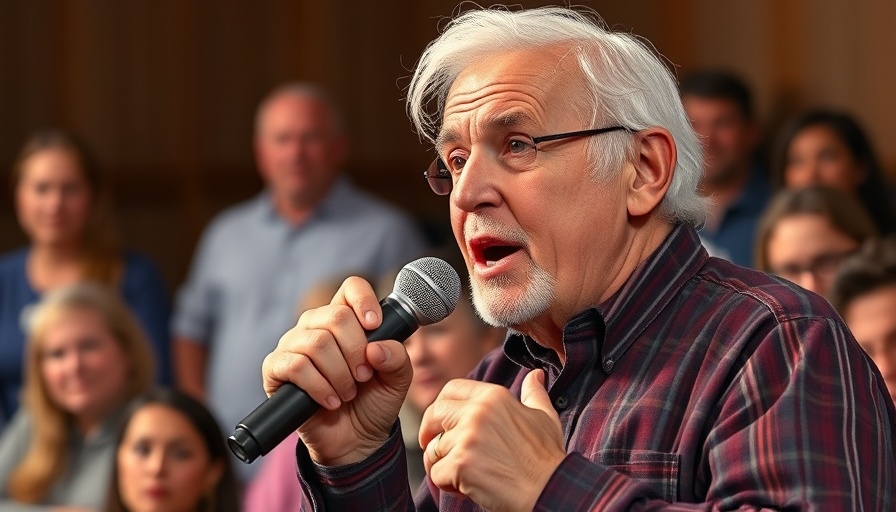
Empire of the Youth: A Call to Arms Against Modern Oppression
At a recent rally in Durban commemorating Youth Day, Jacob Zuma, leader of the uMkhonto weSizwe Party, ignited a passionate call for South African youth to rise up against the systemic oppression that continues to plague the nation. Drawing parallels to the historic Student Uprising of 1976, Zuma highlighted the dire issues facing today's youth, such as debilitating unemployment and poverty, and encouraged young people to reclaim their voices in the ongoing fight for justice and equality.
The Legacy of 1976: Lessons for Today
Zuma's reference to the 1976 uprising, where students protested against oppressive policies imposed during apartheid, serves as a sobering reminder of the sacrifices made for the liberties enjoyed today. He reminded the crowd that, while many battles have been won, new forms of oppression have emerged. “The youth must talk about the problems of this country. I don’t think we should keep quiet and wait for an occasion,” Zuma stated ardently, emphasizing the need for a new wave of activism in spite of historical challenges.
Confronting Contemporary Challenges
In his address, Zuma pointed specifically to issues of youth unemployment which has skyrocketed in recent years, creating a detrimental cycle that affects young people's ability to contribute to society. While discussing the current socio-economic environment, he underscored the critical importance of youth engagement in social and political spheres—a sentiment echoed by various commentators in South Africa's political landscape.
The current climate of high unemployment rates and rising disillusionment among young citizens has spurred various social movements across the nation, calling for reforms in education, economic opportunities, and rights for previously marginalized groups. His call also suggests a recognition of the high stakes involved in shaping the future: “We are still oppressed but the oppression of this time is at another level,” he asserted, paving the way for discourse on government policies and reforms.
Vision for Action: Mobilizing Youth Power
There is a clear indication from Zuma's remarks that actionable steps are necessary for fostering a revolution within South African politics. Developing strategies for youth participation in politics will empower them to influence change more effectively and challenge the entrenched patterns of corruption and inefficiency that hinder progress.
Furthermore, by mobilizing youth around critical issues such as gender-based violence, climate change, and economic recovery, the possibilities for impactful change become apparent. The ability for young people to gather en masse and voice their concerns in a unified front can reshape the future trajectory of the nation.
Building a Coalition: Youth Engagement Beyond Politics
The challenge lies not only in political engagement but in fostering a culture that celebrates skills development and innovation. Analysis from various educational sectors suggests that partnerships between educational institutions and businesses could help bridge the skills gap, thereby reducing youth unemployment. Initiatives supporting tech startups and innovation hubs can encourage a move toward a sustainable economy that is resilient in the face of global challenges.
Embracing Global Trends: South African Youth in a Digital Age
The importance of a digitally literate youth has never been more critical. Adapting to the Fourth Industrial Revolution presents an opportunity for young South Africans. Programs that aim to enhance digital transformation will provide a significant boost to the economy and empower youth to become leaders in the tech landscape.
By recognizing these global trends and harnessing their potential, South African youth can not only address local issues but also position themselves as formidable players in the international arena.
A Call to Action: Unite and Fight
As Zuma spoke passionately to the gathering in Durban, he implored the youth of South Africa to embrace their power and identity. His message resonates now more than ever, urging a resurgence of youth-led movements, not merely to fight for change but to shape the future they wish to see.
It is a time for action—a time to gather around critical causes and craft a narrative where youth empowerment leads to lasting change. In the words of Zuma, “We will come slowly until we reach our destination.” The fight for liberation is not just a dream; it is a dominant call that requires relentless action.
For professionals and leaders invested in the future of South Africa, engaging with and empowering youth voices must become a priority. Understanding and supporting their endeavors can lay the foundations for a more equitable society.
 Add Row
Add Row  Add
Add 




Write A Comment